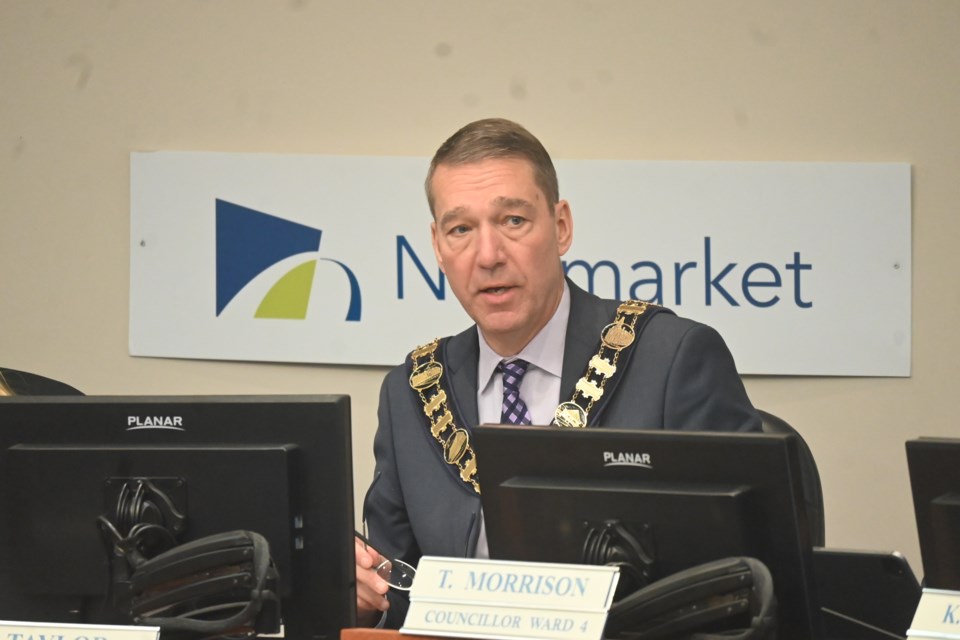The province’s $1.5-billion municipal funding announcement brings no reassurance to the Town of Newmarket, with Mayor John Taylor urging the Ford government to come up with a more realistic plan for building 1.5 million homes across Ontario by 2031.
Premier Doug Ford announced a three-year $1.2 billion in funding for municipalities that have committed to achieving their designated housing targets, as well as expanded strong mayor powers to communities with populations of 50,000 or more.
Taylor told NewmarketToday that the funding will not be enough to cover what municipalities are losing in development charges as a result of the province’s Bill 23. He further said the government’s “almost singular focus” on municipalities to address the housing crisis is a problem.
“Bill 23, strong mayor powers, audits — it’s endless, and it’s distracting both the province and ourselves from the work we should be doing,” Taylor said. “Let’s focus on what needs to be done. Let’s focus on work. Let’s actually build some affordable housing."
The province and Newmarket have been at odds over a designated housing target of 12,000 by 2031, which Newmarket did not commit to over concerns about the timeline for new sewage infrastructure required for further development in town.
Newmarket was excluded from both the new funding pool and strong mayor powers because they are contingent on committing to a housing pledge. Taylor said the province is working on a new target for Newmarket given the sewage capacity concern, but he has yet to hear back on what it will be.
Municipalities are concerned about the implication that the funding will make up for what they are losing from the reduction in development charges — paid by developers to help municipalities pay for growth infrastructure — in Bill 23.
The Association of Municipalities of Ontario has estimated municipalities will need $1 billion annually to cover the impact of Bill 23.
“It’s not even close to the number that’s needed,” Taylor said of the $1.5 billion, adding that the loss of development charges remains a significant challenge.
“I want the public to understand how significant it is. When the government that takes care of your parks and repairs, your roads and builds your community centres has a huge chunk of its funding given away and given to developers, you’re the ones that are losing. We will not be able to build the community you want over the next decade."
The expansion of mayor powers is also an issue, Taylor said. It is not something he said he would personally use, but he added that it stands to subvert democracy. The powers enable mayors to push through bylaws relating to provincial priorities like housing that would normally require a two-thirds vote of council to overturn.
“It’s flawed policy,” Taylor said. “You’re going to sow discontent in communities and among elected officials … In the end, it’s a shortcut around democracy, and it’s going to leave communities frustrated or divided or upset.”
The province said the measures stand to get more homes built, with municipalities needing to reach 80 per cent of an annual housing target each year to be eligible for the $1.5 billion funding pool.
“With these new measures, we’re supporting municipalities and giving them the tools they need to build more homes faster to tackle the affordability crisis that’s pricing too many people, especially young families and newcomers, out of the dream of home ownership,” Premier Doug Ford said in a news release. “We have two choices: We can sit back and ignore the crisis, or we can build more homes. Our government is choosing to build homes.”
Municipalities need to protest in unison, Taylor said.
“It’s time municipalities and mayors collectively voiced, more loudly, their frustration with this constant barrage of policies out of the province that are making life more difficult for towns and cities to succeed."

